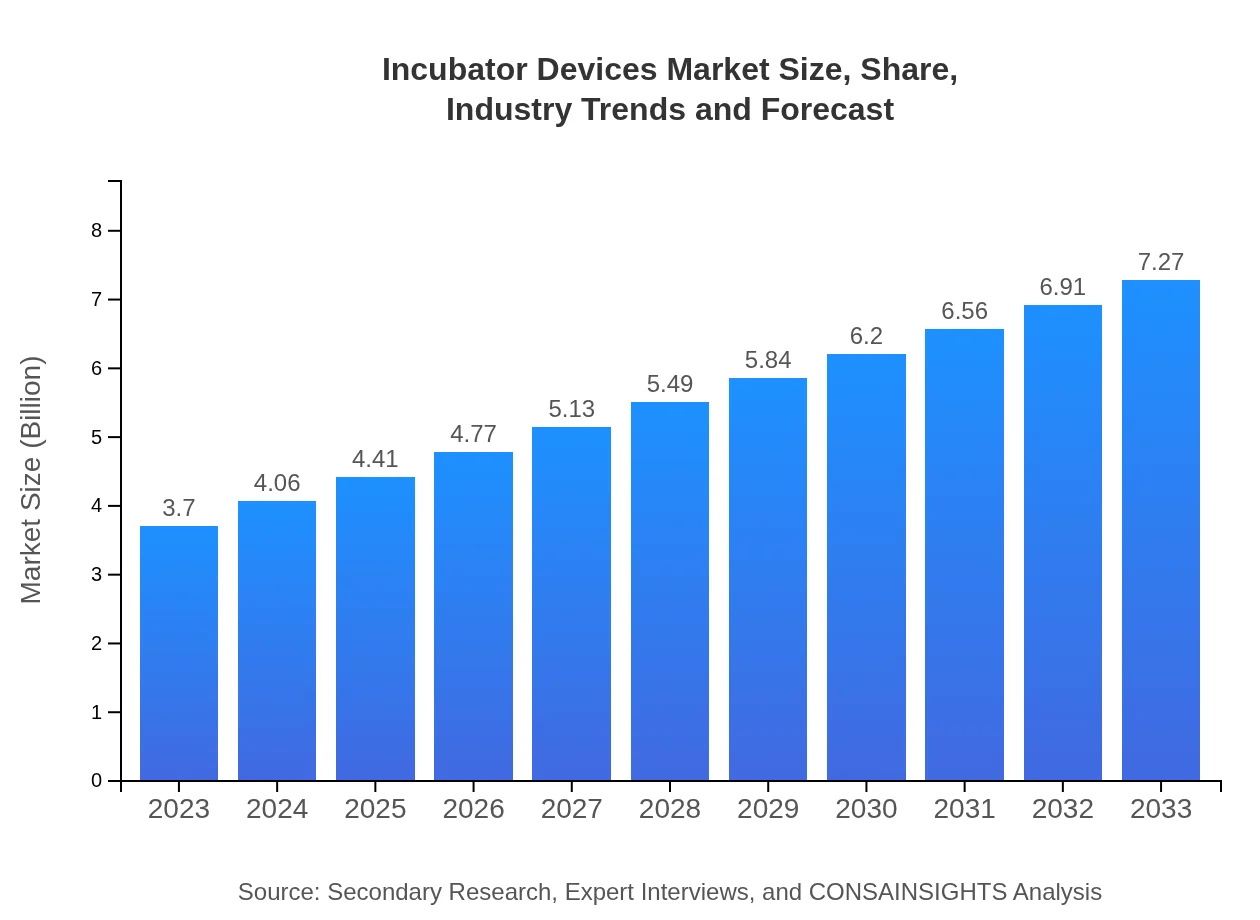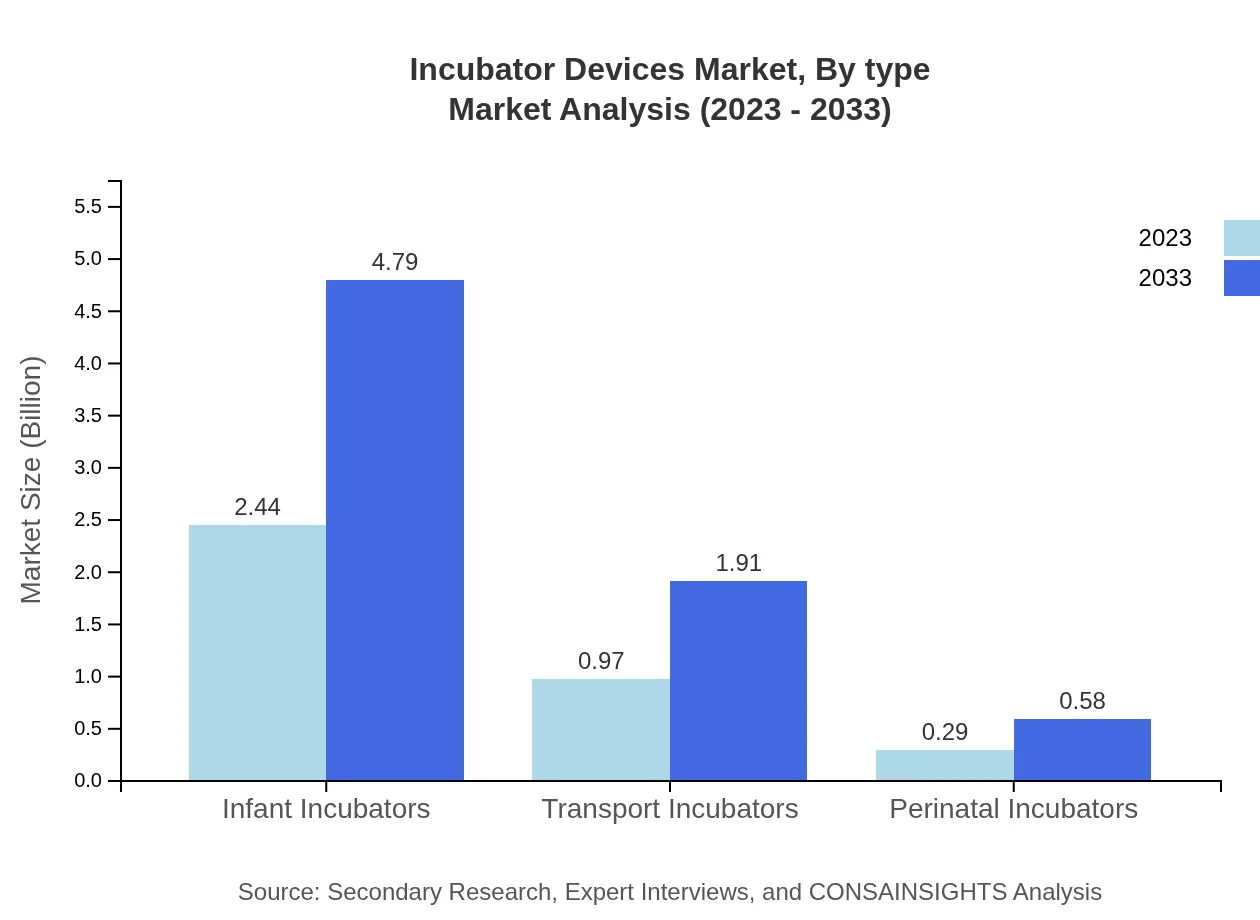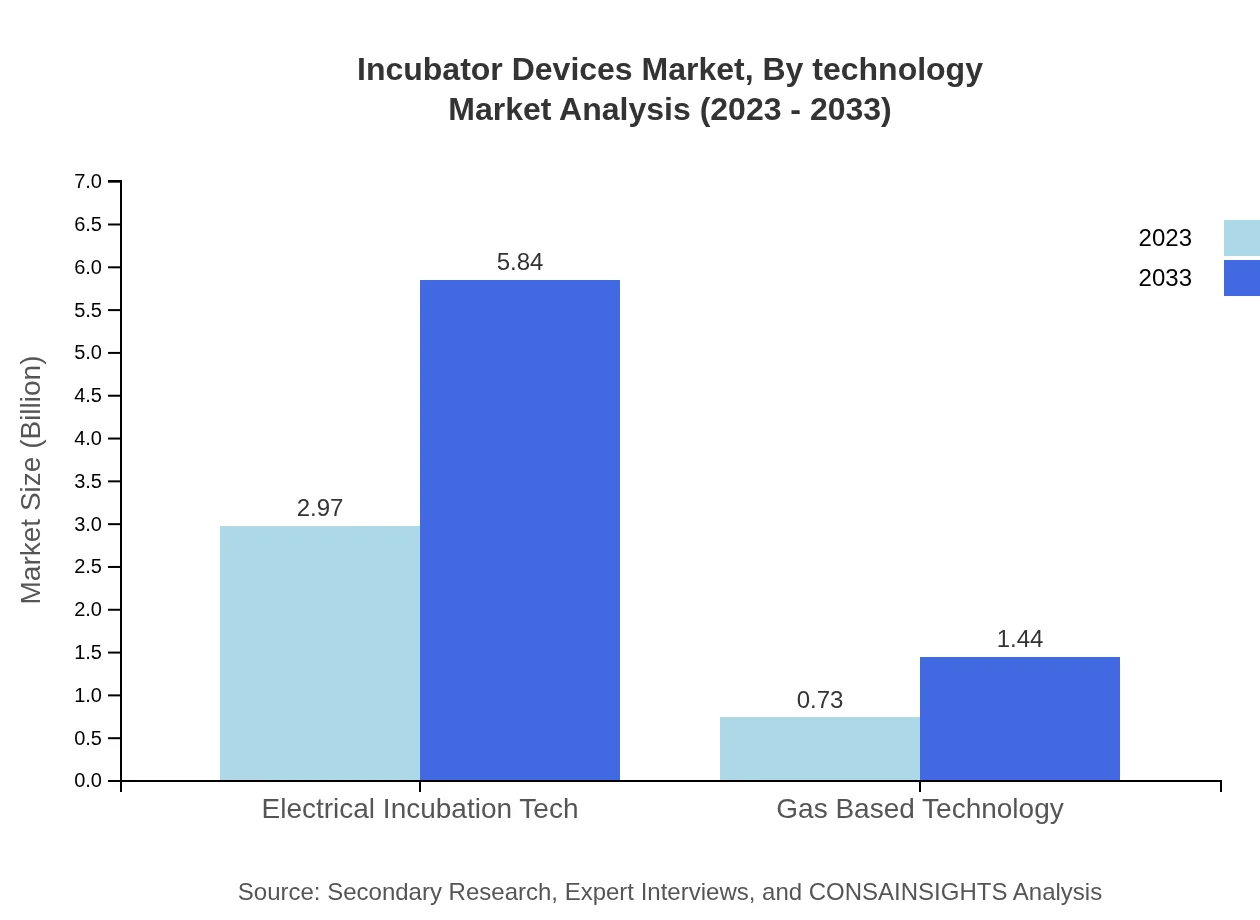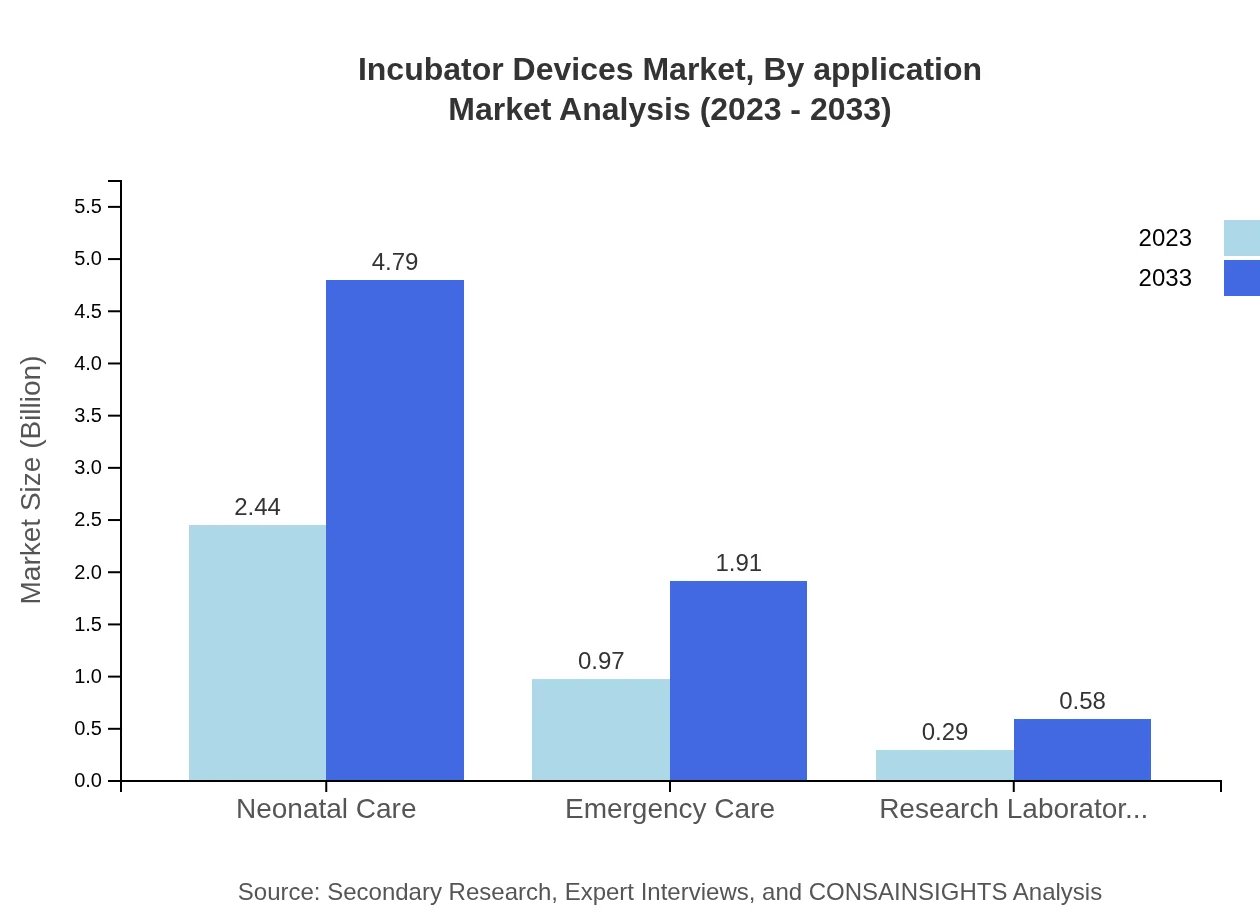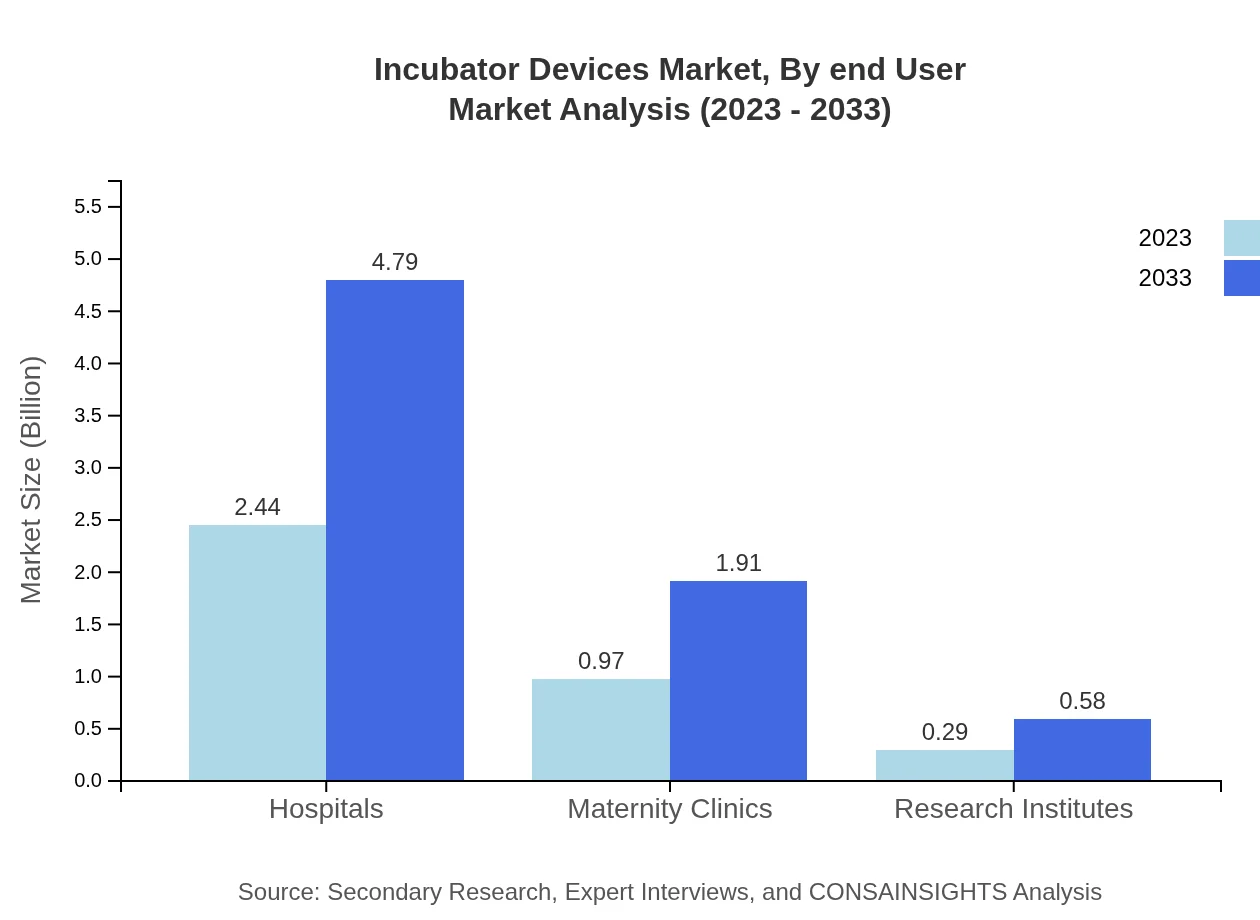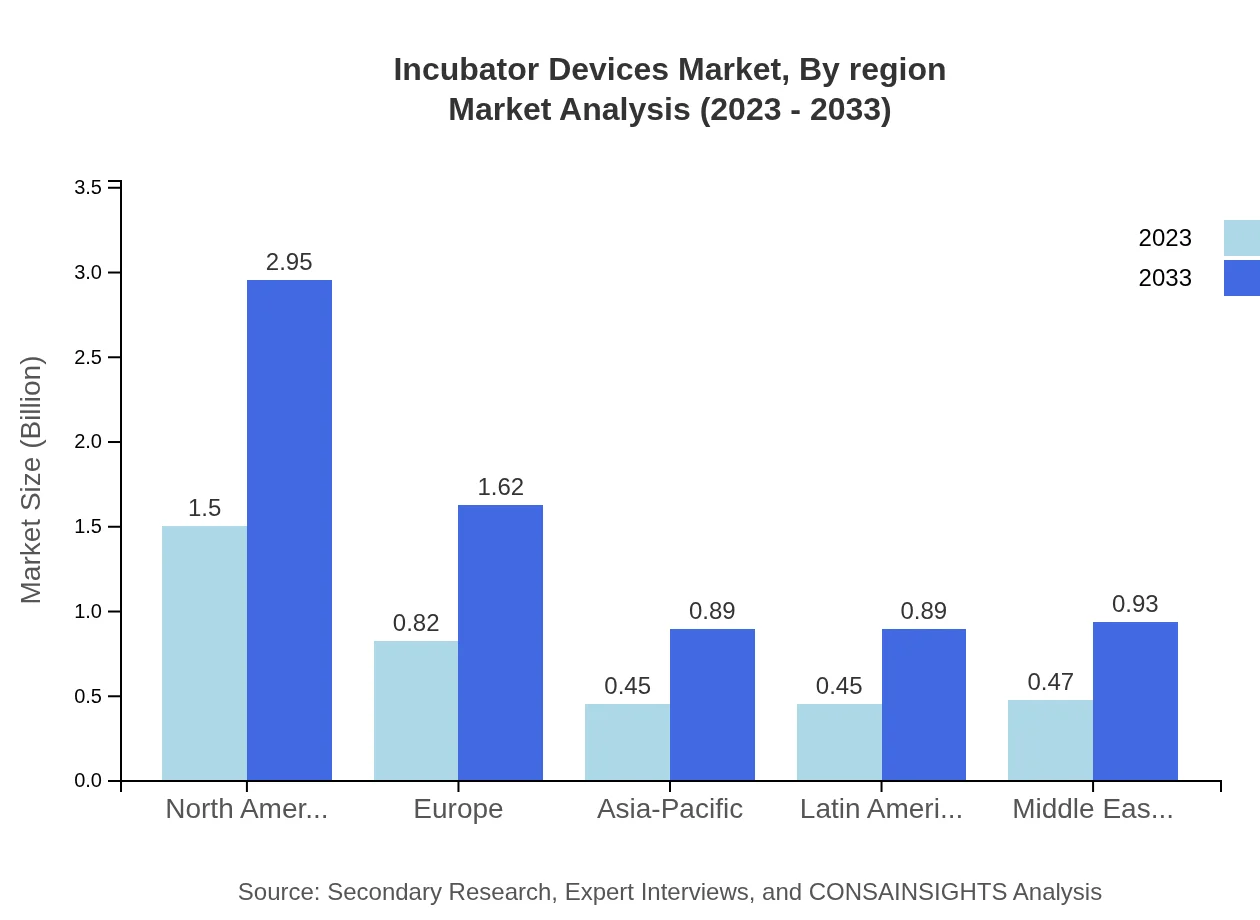Incubator Devices Market Report
Published Date: 31 January 2026 | Report Code: incubator-devices
Incubator Devices Market Size, Share, Industry Trends and Forecast to 2033
This report provides an in-depth analysis of the Incubator Devices market, covering market trends, growth forecasts, and key insights from 2023 to 2033. It also explores market segmentation, technology impacts, and the competitive landscape of industry leaders.
| Metric | Value |
|---|---|
| Study Period | 2023 - 2033 |
| 2023 Market Size | $3.70 Billion |
| CAGR (2023-2033) | 6.8% |
| 2033 Market Size | $7.27 Billion |
| Top Companies | GE Healthcare, Philips Healthcare, Drägerwerk AG, Fisher & Paykel Healthcare, Natus Medical Incorporated |
| Last Modified Date | 31 January 2026 |
Incubator Devices Market Overview
Customize Incubator Devices Market Report market research report
- ✔ Get in-depth analysis of Incubator Devices market size, growth, and forecasts.
- ✔ Understand Incubator Devices's regional dynamics and industry-specific trends.
- ✔ Identify potential applications, end-user demand, and growth segments in Incubator Devices
What is the Market Size & CAGR of Incubator Devices market in 2023?
Incubator Devices Industry Analysis
Incubator Devices Market Segmentation and Scope
Tell us your focus area and get a customized research report.
Incubator Devices Market Analysis Report by Region
Europe Incubator Devices Market Report:
In Europe, the incubator device market is expected to evolve from USD 1.14 billion in 2023 to USD 2.24 billion by 2033. A well-established healthcare system and increasing investments in neonatal care drive this notable growth.Asia Pacific Incubator Devices Market Report:
In the Asia-Pacific region, the market for incubator devices was valued at USD 0.75 billion in 2023 and is expected to grow to USD 1.48 billion by 2033. Key factors driving this growth include increasing hospital expenditures, rising neonatal care awareness, and improving medical infrastructure in developing countries.North America Incubator Devices Market Report:
North America holds a significant market share, with an estimated value of USD 1.19 billion in 2023, anticipated to reach USD 2.33 billion by 2033. The region's advanced healthcare systems and high incidences of premature births contribute to robust market growth.South America Incubator Devices Market Report:
The South American market for incubator devices is projected to grow from USD 0.31 billion in 2023 to USD 0.60 billion by 2033. The growth is driven mainly by government initiatives to improve maternal and child healthcare services in the region.Middle East & Africa Incubator Devices Market Report:
The Middle East and Africa market is poised for growth, with values rising from USD 0.31 billion in 2023 to USD 0.61 billion by 2033, as healthcare upgrades and maternal health programs gain traction.Tell us your focus area and get a customized research report.
Incubator Devices Market Analysis By Type
The Incubator Devices market segments include Infant Incubators, Transport Incubators, and Perinatal Incubators. The Infant Incubators segment is the most significant, accounting for a market size of USD 2.44 billion in 2023 and expected to grow to USD 4.79 billion by 2033. Transport Incubators are also important, with a projected size increase from USD 0.97 billion in 2023 to USD 1.91 billion by 2033.
Incubator Devices Market Analysis By Technology
In terms of technology, Electrical Incubation Tech leads the market, valued at USD 2.97 billion in 2023 and projected to grow to USD 5.84 billion by 2033. Gas-Based Technology follows, expected to rise from USD 0.73 billion in 2023 to USD 1.44 billion by 2033, indicating a rising trend towards more versatile incubator functionalities.
Incubator Devices Market Analysis By Application
Applications of incubators primarily fall within Neonatal Care, Emergency Care, and Research Laboratories. The Neonatal Care application dominates with USD 2.44 billion in 2023, rising to USD 4.79 billion by 2033, while Emergency Care is projected to reach USD 1.91 billion from USD 0.97 billion in the same timeframe.
Incubator Devices Market Analysis By End User
Hospitals represent the largest end-user segment in the Incubator Devices market, accounting for USD 2.44 billion in 2023, expected to grow to USD 4.79 billion by 2033. Maternity Clinics and Research Institutes also contribute significantly, with increasing demand for incubator devices.
Incubator Devices Market Analysis By Region
Regional demand shows a solid uptick across North America, Europe, Asia-Pacific, South America, and the Middle East & Africa, with North America maintaining a lead in market share driven by advanced healthcare systems. Europe follows closely, poised for robust growth in response to healthcare investment.
Incubator Devices Market Trends and Future Forecast
Tell us your focus area and get a customized research report.
Global Market Leaders and Top Companies in Incubator Devices Industry
GE Healthcare:
A leading provider of medical systems and technologies, GE Healthcare offers advanced incubator devices designed to ensure optimal neonatal care and improved patient outcomes.Philips Healthcare:
Philips Healthcare specializes in innovative healthcare technologies and is recognized for its advanced incubators that provide essential monitoring and environmental control for newborns.Drägerwerk AG:
Drägerwerk AG is renowned for its robust neonatal care solutions, including incubators designed for effective temperature regulation and patient monitoring.Fisher & Paykel Healthcare:
Known for their innovative medical solutions, Fisher & Paykel Healthcare provides specialized incubators that enhance patient safety and care quality.Natus Medical Incorporated:
Natus Medical is a key player in the neonatal and perinatal care market, producing high-quality incubators tailored to meet the diverse needs of healthcare providers.We're grateful to work with incredible clients.









FAQs
What is the market size of incubator Devices?
The incubator devices market is currently valued at approximately $3.7 billion in 2023, with a projected growth rate (CAGR) of 6.8% anticipated through 2033. This growth signifies expanding demand and technological advancements in neonatal healthcare.
What are the key market players or companies in this incubator Devices industry?
Key players in the incubator devices market include major medical device manufacturers and specialized players in neonatal care technology. These companies innovate to enhance product efficiency and user experience, contributing to market competitiveness.
What are the primary factors driving the growth in the incubator devices industry?
Growth in the incubator devices industry is primarily driven by increasing prevalence of preterm births, advancements in neonatal care technology, and rising awareness of infant health. Healthcare investments also play a role in expanding infrastructure for maternity and pediatric facilities.
Which region is the fastest Growing in the incubator devices?
The North America region is the fastest-growing market for incubator devices, with a projected expansion from $1.19 billion in 2023 to $2.33 billion by 2033. This growth is driven by robust healthcare infrastructure and increasing incidences of prematurity.
Does ConsaInsights provide customized market report data for the incubator devices industry?
Yes, ConsaInsights offers customized market report data tailored to the incubator devices industry. Clients can obtain specific insights and data aligning with their unique business requirements, enhancing their strategic decision-making.
What deliverables can I expect from this incubator devices market research project?
Deliverables from the incubator devices market research project include comprehensive market analysis, regional assessments, competitive landscape reports, and segmented data insights. These materials aim to inform strategic initiatives and market entry strategies.
What are the market trends of incubator devices?
Current market trends in incubator devices include increasing adoption of advanced technologies like IoT and telemedicine integration, growth in demand for portable and transport incubators, and enhanced focus on energy-efficient designs to drive better health outcomes.

